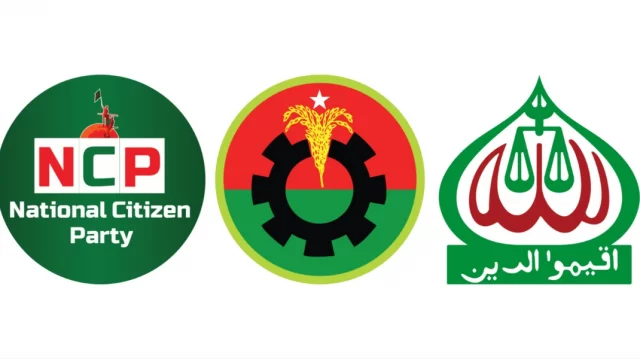Bangladesh’s leading opposition parties are united in demanding the restoration of a caretaker government to oversee national elections—but sharply divided on how it should function and who should lead it. BNP, Jamaat-e-Islami, and the National Citizens Party (NCP) have each sent their own detailed proposals to the National Consensus Commission, reflecting major differences in the selection process for the all-important Chief Adviser and the overall framework for the interim government.
Why Caretaker Government Is a Key Issue
The concept of an election-time caretaker government was introduced to ensure neutrality and fairness in Bangladeshi elections. However, its abolition in 2011 led to years of political unrest, boycotts, and ongoing calls for its restoration. The current political climate has brought the issue to the forefront once again, as opposition parties seek a trustworthy system before the next general election.
The Proposals in Detail
BNP’s Five-Step Proposal for Chief Adviser Appointment
On Sunday, the Bangladesh Nationalist Party (BNP) formally outlined a five-step plan to appoint the Chief Adviser, ensuring a flexible process that can adapt if political consensus is elusive:
- Presidential Appointment after Dialogue: The President would consult with all parliamentary parties to identify a qualified, non-partisan individual for Chief Adviser.
- Selection Committee Formation: If consensus is not reached, a committee is formed comprising the Prime Minister, the Leader of the Opposition, the Speaker, and the Deputy Speaker, chaired by the President (who would not have a vote).
- Widening the Committee: If still deadlocked, a representative from the third-largest party is included, giving the President a tie-breaking vote.
- Further Expansion: If consensus remains unreachable, the committee is expanded to include representatives from each parliamentary party with at least 5% of the vote, with the President again having a vote.
- Return to Thirteenth Amendment: As a final measure, the process reverts to the original caretaker model under the Thirteenth Constitutional Amendment, possibly with or without the President’s involvement, depending on party consensus.
This approach aims to balance representation, transparency, and flexibility, giving parties several chances to agree while always offering a constitutional fallback.
Jamaat-e-Islami’s Multi-Stage Proposal
Jamaat-e-Islami has submitted several blueprints, with key features including strict timelines and multiple backup plans:
- Timeline: The caretaker government must conduct national and local elections within 120 days, extendable by another 60 days if needed.
- If Parliament’s Term Ends:
- A selection committee, led by the Chief Justice and including the Prime Minister and the Leader of the Opposition, will be formed.
- Each major party/coalition can nominate five candidates; other opposition parties can each nominate two.
- The committee must select a Chief Adviser within three days.
- If No Consensus:
- A parliamentary committee headed by the Speaker—including leaders and whips from both government and opposition—will be tasked with making the selection.
- If this fails, a pool of 13 non-partisan candidates (nominated by government, opposition, and other parties) will be considered, and the committee will select one.
- Reinstating the Old System:
- If all mechanisms fail, revert to the Thirteenth Amendment caretaker system, but without assigning the President as Chief Adviser.
- If Parliament Is Dissolved Early:
- The caretaker government must be formed within 24–48 hours to ensure no vacuum in executive authority.
Jamaat’s proposal emphasizes urgency, inclusivity, and a clear chain of decision-making to avoid deadlock and maintain public confidence.
NCP’s Committee-Driven Plan
The National Citizens Party (NCP) has advocated for a more parliamentary, proportion-based system:
- All-Party Committee Formation:
- At least three weeks before parliament dissolves, an 11-member committee is to be formed.
- Committee representation is proportionate to the parliamentary parties’ share of the vote, but only parties with at least 5% of the vote are included.
- Nomination and Transparency:
- The ruling party, main opposition, and other opposition parties will each propose three non-partisan candidates for Chief Adviser.
- All nominated names will be made public to ensure transparency.
- Selection Process:
- The committee will finalize the Chief Adviser by an 8-3 vote.
- If consensus is not reached, the upper house will employ ranked-choice voting to select the Chief Adviser from the proposed candidates.
NCP’s plan is designed to maximize transparency, proportional representation, and ensure that no single party can dominate the selection.
The National Consensus Commission will convene with all parties next week to debate these proposals in detail. While the return of the caretaker system is broadly supported, the appointment process and structure of the interim government remain contentious. Reaching consensus will be crucial for restoring public trust in Bangladesh’s electoral process.
How this debate resolves will shape not just the next general election, but the political stability and democratic legitimacy of Bangladesh in the years to come. With major parties staking their future on the caretaker government issue, all eyes are on the Consensus Commission’s upcoming deliberations.

